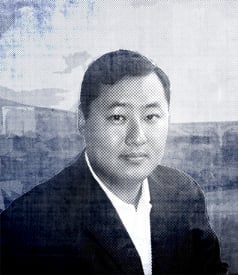Truthout is a vital news source and a living history of political struggle. If you think our work is valuable, support us with a donation of any size.
Challenged for his 2005 statement that whether the president could lawfully torture a person’s child depends on “why the President thinks he needs to do that,” undaunted, John Yoo repeated his claim that it would depend on whether the president finds it “necessary.”
Promoting his new book “Crisis and Command: A History of Executive Power From George Washington to George W. Bush,” Yoo spoke in Los Angeles Thursday at a program sponsored by the Federalist Society and the Libertarian Law Council.
After Yoo traced his views on how great presidents are the ones who have interpreted their executive powers broadly, especially in war time, I asked Yoo whether he could more clearly define whether there were any limits to presidential power. I reminded him about the following exchange he had with Professor Doug Cassel in December, 2005 at a debate in Chicago:
Cassel: If the President deems that he’s got to torture somebody, including by crushing the testicles of the person’s child, there is no law that can stop him?
Yoo: No treaty.
Cassel: Also no law by Congress. That is what you wrote in the August 2002 memo.
Yoo: I think it depends on why the President thinks he needs to do that.
(Here is a longer excerpt of these remarks in context, five MB with six minutes of question and answer.)
Today, Yoo did not disclaim these remarks. At first, he said there was more to the 2005 debate than this excerpt (although he did not say what it was) and that the example was entirely “hypothetical.” But far from proposing that there were any constitutional limits on the president’s authority or even a set of principles that would categorically place such gruesome torture beyond the power of any president, Yoo stated that the president’s powers are “limited to what is necessary.”
He added that “terrible things happen in war” such as the dropping of what he called nuclear bombs on Japan in World War II, but such decisions are left to the president. In the end, Yoo concluded, a president always faces the possibility of impeachment.
As reports emerge that a long awaited Justice Department ethics investigation is likely to clear Yoo of any wrongdoing, Yoo exhibited an air of confidence and assurance throughout his remarks, indicating that he was in no mood to apologize for what he said in 2005. Indeed, he began his talk by describing how he “beat” Jon Stewart during his recent appearance on “The Daily Show.” After subjecting Stewart to “two or three minutes of the Socratic Method,” Yoo proudly declared, “he was mine.”
A terrifying moment. We appeal for your support.
In the last weeks, we have witnessed an authoritarian assault on communities in Minnesota and across the nation.
The need for truthful, grassroots reporting is urgent at this cataclysmic historical moment. Yet, Trump-aligned billionaires and other allies have taken over many legacy media outlets — the culmination of a decades-long campaign to place control of the narrative into the hands of the political right.
We refuse to let Trump’s blatant propaganda machine go unchecked. Untethered to corporate ownership or advertisers, Truthout remains fearless in our reporting and our determination to use journalism as a tool for justice.
But we need your help just to fund our basic expenses. Over 80 percent of Truthout’s funding comes from small individual donations from our community of readers, and over a third of our total budget is supported by recurring monthly donors.
Truthout has launched a fundraiser to add 340 new monthly donors in the next 5 days. Whether you can make a small monthly donation or a larger one-time gift, Truthout only works with your support.
